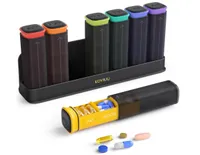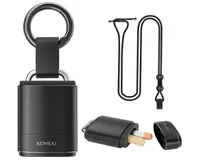Ozempic, Botox, Eliquis: How Tariffs on Europe Could Impact Drug Prices (And What To Do About It)
Most medications come from Europe. Does that mean the new tariffs on the EU will drive drug prices higher?

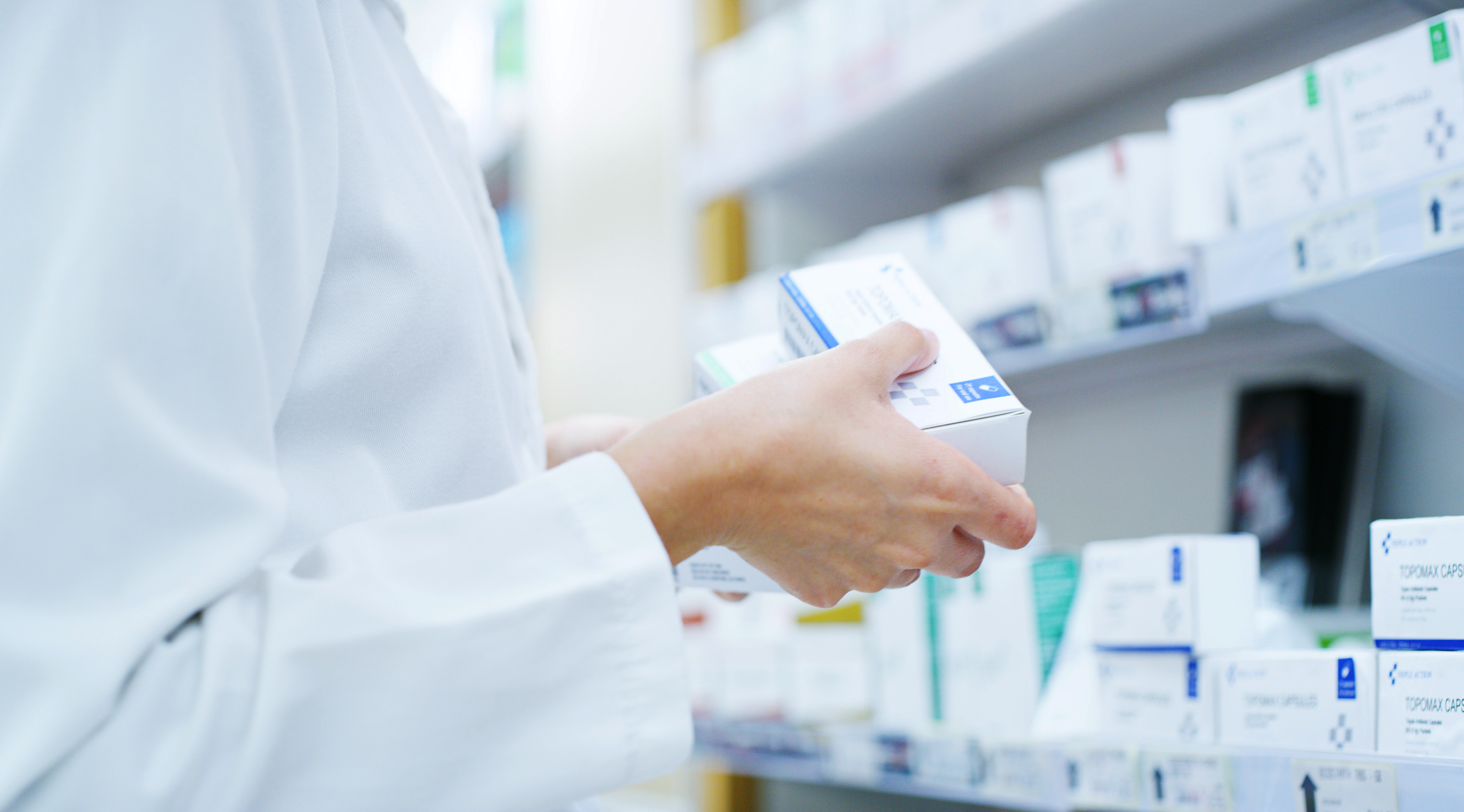
Profit and prosper with the best of Kiplinger's advice on investing, taxes, retirement, personal finance and much more. Delivered daily. Enter your email in the box and click Sign Me Up.
You are now subscribed
Your newsletter sign-up was successful
Want to add more newsletters?

Delivered daily
Kiplinger Today
Profit and prosper with the best of Kiplinger's advice on investing, taxes, retirement, personal finance and much more delivered daily. Smart money moves start here.

Sent five days a week
Kiplinger A Step Ahead
Get practical help to make better financial decisions in your everyday life, from spending to savings on top deals.

Delivered daily
Kiplinger Closing Bell
Get today's biggest financial and investing headlines delivered to your inbox every day the U.S. stock market is open.

Sent twice a week
Kiplinger Adviser Intel
Financial pros across the country share best practices and fresh tactics to preserve and grow your wealth.

Delivered weekly
Kiplinger Tax Tips
Trim your federal and state tax bills with practical tax-planning and tax-cutting strategies.

Sent twice a week
Kiplinger Retirement Tips
Your twice-a-week guide to planning and enjoying a financially secure and richly rewarding retirement

Sent bimonthly.
Kiplinger Adviser Angle
Insights for advisers, wealth managers and other financial professionals.

Sent twice a week
Kiplinger Investing Weekly
Your twice-a-week roundup of promising stocks, funds, companies and industries you should consider, ones you should avoid, and why.

Sent weekly for six weeks
Kiplinger Invest for Retirement
Your step-by-step six-part series on how to invest for retirement, from devising a successful strategy to exactly which investments to choose.
With approximately 60% of prescription drugs coming from Europe, including major brands like Ozempic, Botox and Eliquis, many Americans are wondering if the 15% tariff established under Trump's EU trade deal will make their medications more expensive. The answer is, unfortunately, not so straightforward.
While pharmaceutical companies enjoy generous profit margins on brand name drugs to potentially absorb Trump's tariffs, margins on generics are much thinner. And it's generics that account for 90% of prescriptions in the U.S., according to the United States Pharmacopeial Convention.
Meanwhile, the Trump administration is in ongoing talks with those companies to lower drug prices for U.S. consumers. Depending on how those talks go, any potential drop in prices could offset the possible tariff-related price hikes. Here's a look at where things stand now and what to watch for going forward when it comes to the prices you pay for medication.
From just $107.88 $24.99 for Kiplinger Personal Finance
Become a smarter, better informed investor. Subscribe from just $107.88 $24.99, plus get up to 4 Special Issues

Sign up for Kiplinger’s Free Newsletters
Profit and prosper with the best of expert advice on investing, taxes, retirement, personal finance and more - straight to your e-mail.
Profit and prosper with the best of expert advice - straight to your e-mail.
Do drugmakers really need to raise prices in response to tariffs?

For many medications sold in the United States, particularly those that are still under patent protection, profit margins are already generous. According to the Department of Health and Human Services, brand-name drugs are marked up 322% in the U.S. compared to other countries. The average markup across both brand name and generic medications is 278%.
In light of those markups, the 15% tariff would only be a slight dent in profit margins. It wouldn't be unrealistic for a company to simply absorb the costs. Of course, just because a company could absorb the costs doesn't mean it will.
Doing so may be in their best interest, however. President Trump has been putting increasing pressure on pharmaceutical companies to give the United States "most favored nation" pricing. That is, he wants the prices Americans pay to be the same as the lowest prices those pharmaceutical companies charge elsewhere in the world.
Tacking the 15% tariff upcharge onto the already high price Americans pay for medications could stoke the flames of those calls for dramatically lower drug prices.
That would, undoubtedly, be a bigger hit to profit margins than the tariffs. Despite only buying about 13% of the global prescription drug supply (by volume), Americans account for 50% of worldwide pharmaceutical sales revenue. Losing access to this market would be a substantial hit to drugmakers.
But so would acquiescing to Trump's demands for lower drug prices. Given that the U.S. alone accounts for half of worldwide pharmaceutical revenue, bringing the prices Americans pay for medication in line with the rest of the world would be a major hit to revenue.
Keep your medications and supplements organized with this 7-day pill holder featuring detachable AM/PM compartments. The BPA-free design includes airtight silicone lids to keep contents fresh.
Can Trump force pharmaceutical companies to lower drug prices?
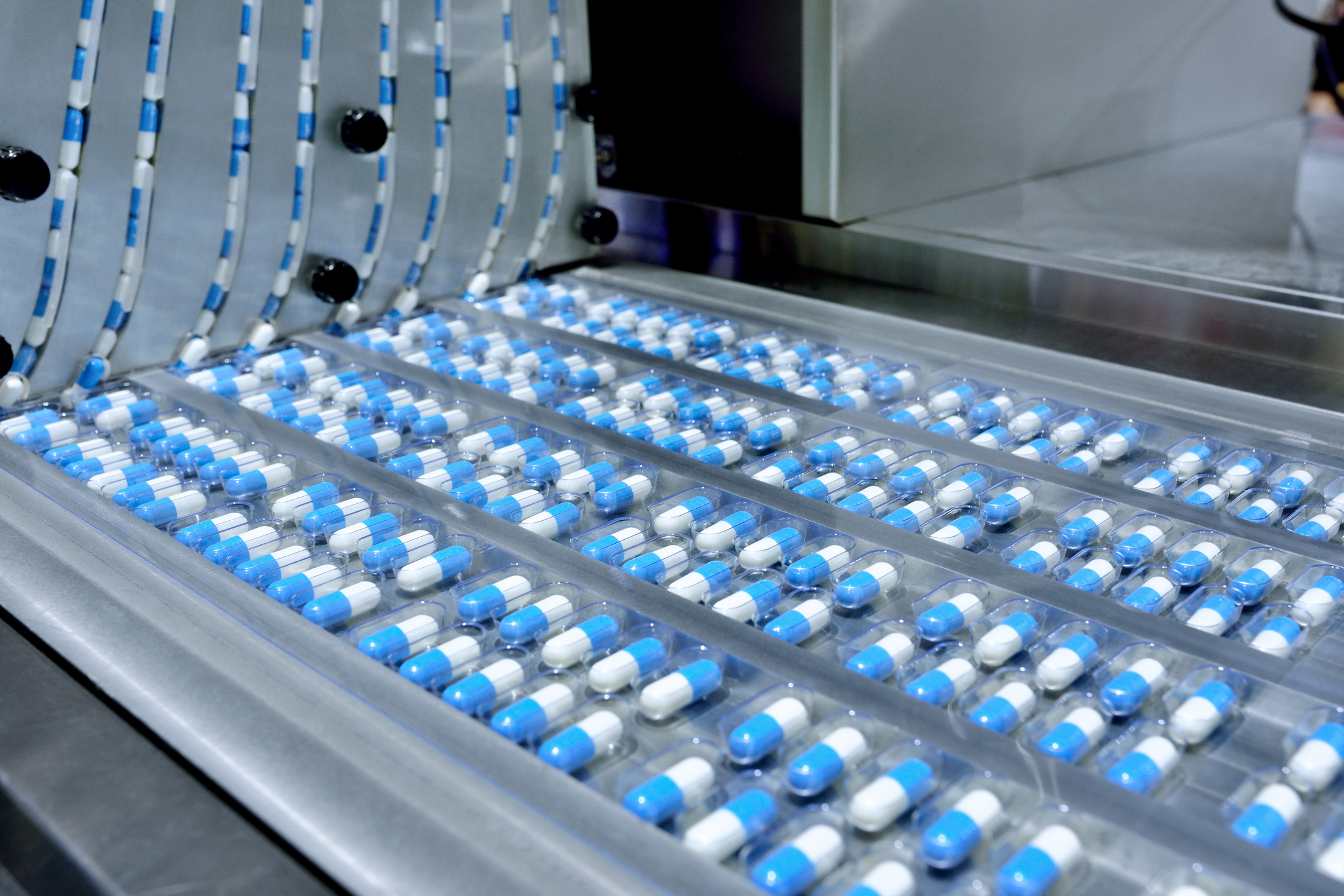
President Trump issued an executive order on May 12 demanding pharmaceutical companies lower drug prices for U.S. consumers. Specifically, he asked for "most favored nation" (MFN) pricing on all prescription drugs. While the details on how that would be calculated came later, the idea was to make the prices Americans pay the same as the lowest price manufacturers charge for a given drug in other countries.
If drugmakers don't comply, Trump threatened to "deploy every tool in our arsenal to protect American families."
What are those tools exactly? Right now, there don't seem to be many. The Department of Health and Human Services (HHS) has some authority to shape pricing for medications paid for through Medicare, Medicaid or the Children's Health Insurance Program (CHIP). But it has no real authority to dictate the prices paid in the private health insurance market.
On July 31, Trump posted a letter on X that he sent out to 17 pharmaceutical companies. The demands here were notably softer than the May executive order. Instead of asking for MFN pricing on all prescription drugs, Trump demanded those rates only for Medicaid patients and only for new drugs.
The letter goes on to ask companies to raise prices in other companies to make up for lower drug prices by raising prices in other countries – noting that "U.S. trade policy will endeavor to support this."
The softer demands and the language around using trade policy to help push higher drug prices in other countries suggests that the Trump administration is attempting to get drug companies to voluntarily lower prices, given its limited authority to enforce its demands.
However, just how much of an impact any of this will make on the cost of your medications is unclear. We'll have to wait and see how negotiations with drug companies and pending trade deals with other countries play out.
What this policy battle over drug prices means for you

The way things stand now, pharmaceutical companies appear to have five options:
- Pass the cost of tariffs on to customers, which could raise your out-of-pocket costs and, eventually, your premiums as your insurer passes those higher costs on to you. But this risks putting further pressure on U.S. policymakers to regulate drug prices.
- Pass the cost of relocating manufacturing to the U.S. to avoid tariffs on customers. Similar to the first option, this would mean you see a slight bump in out-of-pocket cost and, potentially, insurance premiums.
- Comply with Trump's demand to give the U.S. "most favorable nation" (MFN) pricing, erasing the dramatic markup on drug prices. This would mean significantly lower out-of-pocket costs for you. But it seems unlikely without regulatory enforcement since this would also pose the biggest losses to pharmaceutical companies.
- Comply with Trump's demand, but do so through a combination of lowering U.S. drug prices while raising prices in other countries. By raising up MFN prices, the revenue cut would be less sharp and at least some of the losses could be made up in the higher prices charged elsewhere. This would still likely mean lower out-of-pocket costs to you. But, whether or not this is possible depends on regulations and market conditions in other countries.
- Ignore Trump's call for MFN pricing by the September 29 deadline and see what happens. As of now, it's unclear what the administration can or would do to actually enforce these demands. For consumers, this would translate to costs staying about the same, or increasing slightly if companies choose to both ignore the demands and tack tariffs onto drug prices.
The actual response is likely to vary from one company to the next. But, from the perspective of preserving their bottom lines, it would make sense to absorb the current tariffs in an effort to avoid stoking the flames further on the drug pricing issue.
For consumers, then, a likely scenario is that drug prices remain relatively flat at least in the short term while pharmaceutical companies figure out what, if any, consequences there would be to ignoring Trump's ultimatum.
This compact pill holder keeps emergency meds secure and easily accessible. It features a quiet magnetic closure and a light-blocking, BPA-free design. Clip it to a keychain or bag for quick access on the go.
What about generic medications?
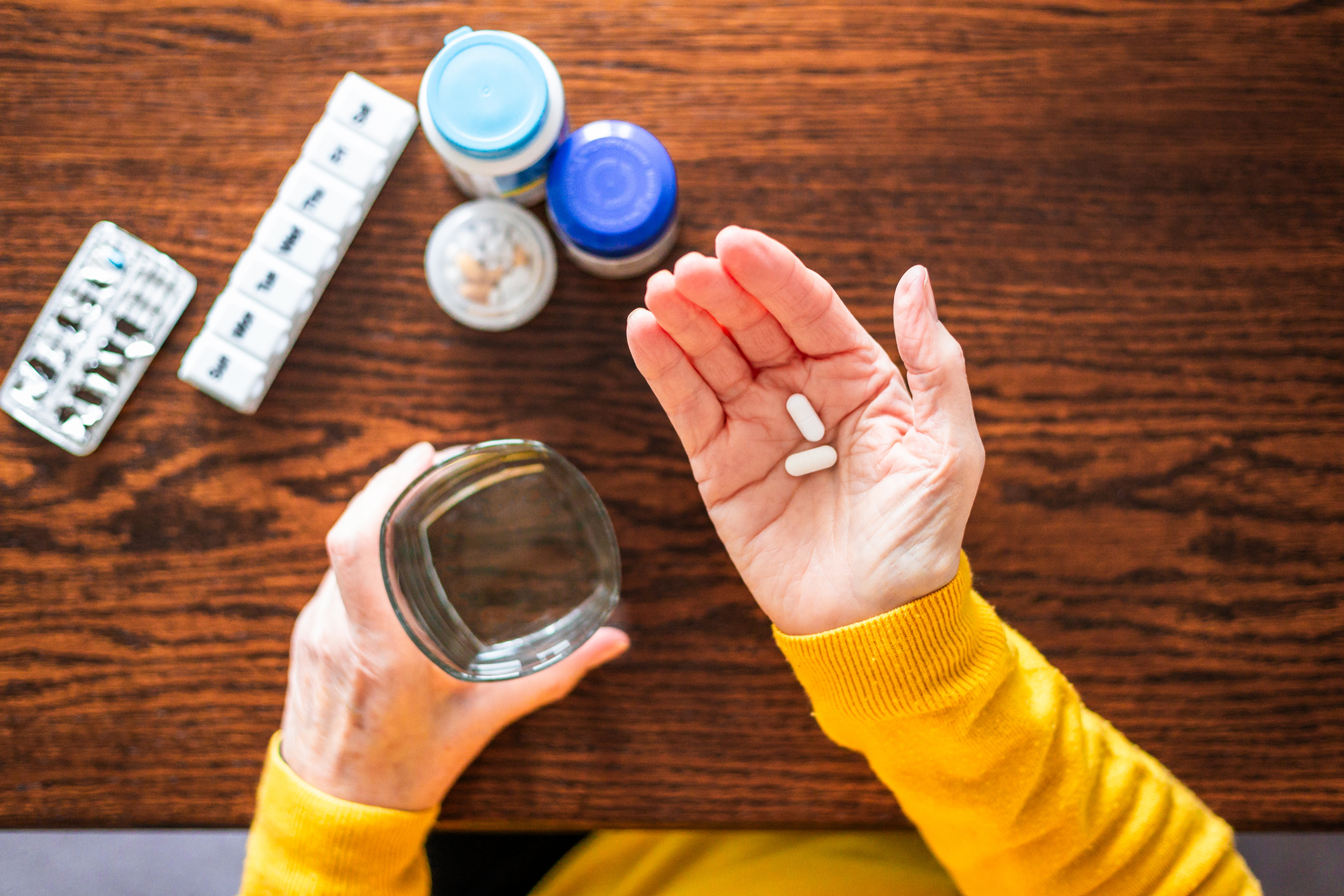
As mentioned earlier, about 90% of the prescription medications sold in the U.S. are generic. While officials said certain generics would be exempt from the tariffs in the announcement of the EU trade deal with the U.S., talks are still ongoing about which ones will make the list.
According to the United States Pharmacopeial Convention, only 18% of generic drugs are manufactured inside the EU. So this trade deal won't make a significant impact on the majority of generics. Instead, you'll want to watch for a trade deal with India, which produces 35% of generic medications.
With that said, the profit margins on generics are thin. One analysis from the USC Leonard D. Schaeffer Center for Health Policy & Economics found that they had an average return on investment of just 5%. With margins that thin, manufacturers would likely have to pass any tariffs on to customers to avoid losing money on generics.
How to plan for post-tariff medication prices
Since it's still unclear what will happen with drug prices going forward, it's hard to plan ahead properly. If you don't pay out of pocket for any medications right now, then all you can really do is sit and wait to see how things play out.
If you do pay out of pocket for any of your prescriptions, consider asking your doctor to write you advance prescriptions so you can fill them at today's prices. That way, you can buy yourself time while you wait to see what happens with drug prices in the future.
Related content
Profit and prosper with the best of Kiplinger's advice on investing, taxes, retirement, personal finance and much more. Delivered daily. Enter your email in the box and click Sign Me Up.

Rachael Green is a personal finance eCommerce writer specializing in insurance, travel, and credit cards. Before joining Kiplinger in 2025, she wrote blogs and whitepapers for financial advisors and reported on everything from the latest business news and investing trends to the best shopping deals. Her bylines have appeared in Benzinga, CBS News, Travel + Leisure, Bustle, and numerous other publications. A former digital nomad, Rachael lived in Lund, Vienna, and New York before settling down in Atlanta. She’s eager to share her tips for finding the best travel deals and navigating the logistics of managing money while living abroad. When she’s not researching the latest insurance trends or sharing the best credit card reward hacks, Rachael can be found traveling or working in her garden.
-
 Quiz: Do You Know How to Avoid the "Medigap Trap?"
Quiz: Do You Know How to Avoid the "Medigap Trap?"Quiz Test your basic knowledge of the "Medigap Trap" in our quick quiz.
-
 5 Top Tax-Efficient Mutual Funds for Smarter Investing
5 Top Tax-Efficient Mutual Funds for Smarter InvestingMutual funds are many things, but "tax-friendly" usually isn't one of them. These are the exceptions.
-
 AI Sparks Existential Crisis for Software Stocks
AI Sparks Existential Crisis for Software StocksThe Kiplinger Letter Fears that SaaS subscription software could be rendered obsolete by artificial intelligence make investors jittery.
-
 One of the Most Powerful Wealth-Building Moves a Woman Can Make: A Midcareer Pivot
One of the Most Powerful Wealth-Building Moves a Woman Can Make: A Midcareer PivotIf it feels like you can't sustain what you're doing for the next 20 years, it's time for an honest look at what's draining you and what energizes you.
-
 I'm a Wealth Adviser Obsessed With Mahjong: Here Are 8 Ways It Can Teach Us How to Manage Our Money
I'm a Wealth Adviser Obsessed With Mahjong: Here Are 8 Ways It Can Teach Us How to Manage Our MoneyThis increasingly popular Chinese game can teach us not only how to help manage our money but also how important it is to connect with other people.
-
 Looking for a Financial Book That Won't Put Your Young Adult to Sleep? This One Makes 'Cents'
Looking for a Financial Book That Won't Put Your Young Adult to Sleep? This One Makes 'Cents'"Wealth Your Way" by Cosmo DeStefano offers a highly accessible guide for young adults and their parents on building wealth through simple, consistent habits.
-
 My Spouse and I Are Saving Money for a Down Payment on a House. Which Savings Account is the Best Way to Reach Our Goal?
My Spouse and I Are Saving Money for a Down Payment on a House. Which Savings Account is the Best Way to Reach Our Goal?Learn how timing matters when it comes to choosing the right account.
-
 We're 78 and Want to Use Our 2026 RMD to Treat Our Kids and Grandkids to a Vacation. How Should We Approach This?
We're 78 and Want to Use Our 2026 RMD to Treat Our Kids and Grandkids to a Vacation. How Should We Approach This?An extended family vacation can be a fun and bonding experience if planned well. Here are tips from travel experts.
-
 Why Most Millionaires Don't Feel Wealthy — and What It Really Takes to Feel Financially Secure
Why Most Millionaires Don't Feel Wealthy — and What It Really Takes to Feel Financially SecureA growing share of Americans reach millionaire status yet still worry about money. Here's why wealth feels different today and how to build true financial confidence.
-
 You Could Be Overpaying for Internet. Here’s How to Choose the Right Type
You Could Be Overpaying for Internet. Here’s How to Choose the Right TypeFiber, cable, 5G wireless and satellite internet all offer different speeds, reliability and price points. Understanding the differences could help you lower your monthly bill or improve performance.
-
 My First $1 Million: Retired From Real Estate, 75, San Francisco
My First $1 Million: Retired From Real Estate, 75, San FranciscoEver wonder how someone who's made a million dollars or more did it? Kiplinger's My First $1 Million series uncovers the answers.
